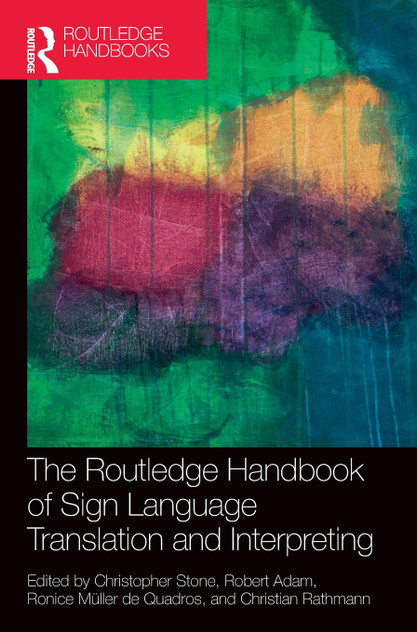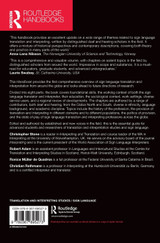More the 1.46 million people in the United States have hearing losses in sufficient severity to be considered deaf; another 21 million people have other hearing impairments. For many deaf and hard-of-hearing individuals, sign language and voice interpreting is essential to their participation in educational programs and their access to public and private services. However, there is less than half the number of interpreters needed to meet the demand, interpreting
quality is often variable, and there is a considerable lack of knowledge of factors that contribute to successful interpreting. Perhaps it is not surprising, then, that a study by the National
Association of the Deaf (NAD) found that 70% of the deaf individuals are dissatisfied with interpreting quality. Because recent legislation in the United States and elsewhere has mandated access to educational, employment, and other contexts for deaf individuals and others with hearing disabilities, there is an increasing need for quality sign language interpreting. It is in education, however, that the need is most pressing, particularly because more than 75% of deaf students now attend
regular schools (rather than schools for the deaf), where teachers and classmates are unable to sign for themselves. In the more than 100 interpreter training programs in the U.S. alone, there are a
variety of educational models, but little empirical information on how to evaluate them or determine their appropriateness in different interpreting and interpreter education-covering what we know, what we do not know, and what we should know. Several volumes have covered interpreting and interpreter education, there are even some published dissertations that have included a single research study, and a few books have attempted to offer methods for professional interpreters or interpreter
educators with nods to existing research. This is the first volume that synthesizes existing work and provides a coherent picture of the field as a whole, including evaluation of the extent to which
current practices are supported by validating research. It will be the first comprehensive source, suitable as both a reference book and a textbook for interpreter training programs and a variety of courses on bilingual education, psycholinguistics and translation, and cross-linguistic studies.


